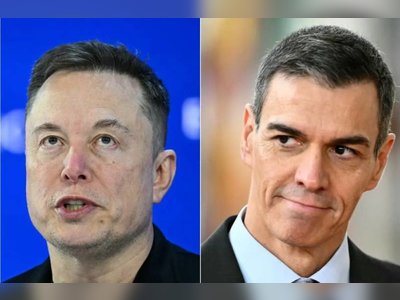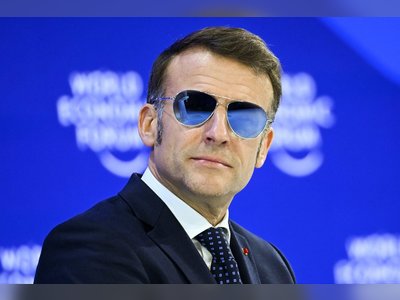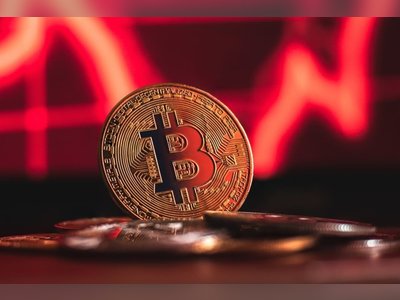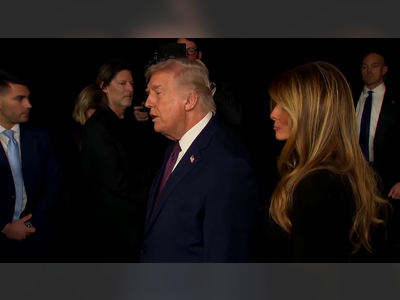Elon Musk Encourages Germans to Support AfD as European Political Tensions Escalate
The billionaire's backing of Germany's far-right party, Alternative for Germany (AfD), sparks worries about foreign intervention as Germany approaches its 2025 elections.
In a notable move that has heightened tensions throughout Europe, Elon Musk has openly backed Germany's far-right party, Alternative for Germany (AfD), just weeks before the country's snap elections on February 23, 2025.
During an audio livestream appearance with AfD co-leader Alice Weidel, Musk proclaimed, “Only AfD can save Germany,” urging German voters to support the party in the upcoming elections.
He likened Germany's political climate to that of the United States, where discontent with the leadership led to Donald Trump's election.
Musk also reiterated his strong support for Trump's position on the Ukraine conflict, describing it as a situation that only the incoming president could resolve.
His remarks have drawn fierce criticism from German politicians, especially after he labeled German President Frank-Walter Steinmeier “an anti-democratic tyrant” for opposing foreign interference.
These comments are seen as part of a broader pattern of Musk engaging in European politics, including his support for other far-right leaders like Italy’s Prime Minister Giorgia Meloni.
Alongside expressing support for the AfD's anti-immigrant agenda, Weidel also connected Germany’s commitment to protecting Israel with the party’s values.
Musk’s involvement has sparked concern about the role of social media platforms in elections, with European officials cautioning that his actions might breach EU laws, particularly the Digital Services Act.
The growing alliance between Musk and far-right political figures across Europe underscores the evolving landscape of global politics, where tech billionaires are exerting greater influence.
The European Commission has taken note of these developments, with its former internal market chief, Thierry Breton, urging Musk to fully adhere to EU regulations, especially during election periods.
This scrutiny comes as Musk’s social media platform, X, faces ongoing investigations into its potential role in undermining democratic processes across Europe.
During an audio livestream appearance with AfD co-leader Alice Weidel, Musk proclaimed, “Only AfD can save Germany,” urging German voters to support the party in the upcoming elections.
He likened Germany's political climate to that of the United States, where discontent with the leadership led to Donald Trump's election.
Musk also reiterated his strong support for Trump's position on the Ukraine conflict, describing it as a situation that only the incoming president could resolve.
His remarks have drawn fierce criticism from German politicians, especially after he labeled German President Frank-Walter Steinmeier “an anti-democratic tyrant” for opposing foreign interference.
These comments are seen as part of a broader pattern of Musk engaging in European politics, including his support for other far-right leaders like Italy’s Prime Minister Giorgia Meloni.
Alongside expressing support for the AfD's anti-immigrant agenda, Weidel also connected Germany’s commitment to protecting Israel with the party’s values.
Musk’s involvement has sparked concern about the role of social media platforms in elections, with European officials cautioning that his actions might breach EU laws, particularly the Digital Services Act.
The growing alliance between Musk and far-right political figures across Europe underscores the evolving landscape of global politics, where tech billionaires are exerting greater influence.
The European Commission has taken note of these developments, with its former internal market chief, Thierry Breton, urging Musk to fully adhere to EU regulations, especially during election periods.
This scrutiny comes as Musk’s social media platform, X, faces ongoing investigations into its potential role in undermining democratic processes across Europe.
Translation:
Translated by AI
AI Disclaimer: An advanced artificial intelligence (AI) system generated the content of this page on its own. This innovative technology conducts extensive research from a variety of reliable sources, performs rigorous fact-checking and verification, cleans up and balances biased or manipulated content, and presents a minimal factual summary that is just enough yet essential for you to function as an informed and educated citizen. Please keep in mind, however, that this system is an evolving technology, and as a result, the article may contain accidental inaccuracies or errors. We urge you to help us improve our site by reporting any inaccuracies you find using the "Contact Us" link at the bottom of this page. Your helpful feedback helps us improve our system and deliver more precise content. When you find an article of interest here, please look for the full and extensive coverage of this topic in traditional news sources, as they are written by professional journalists that we try to support, not replace. We appreciate your understanding and assistance.











